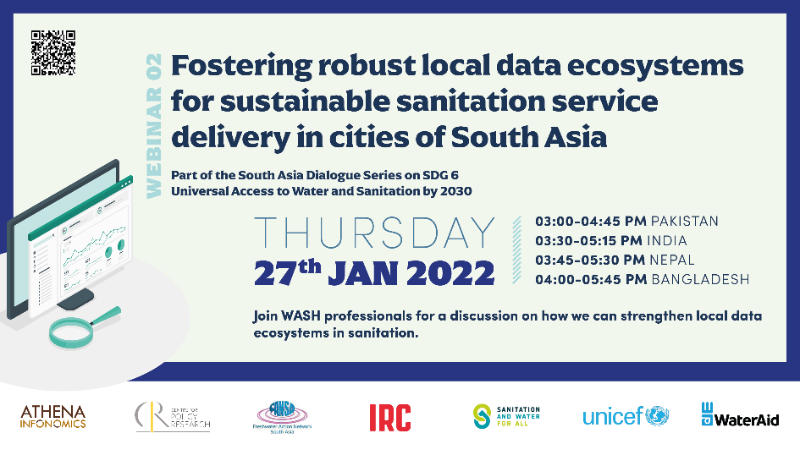- Forum
- categories
- Markets, finance and governance
- Global and regional political processes
- Sustainable Development Goals (SDGs), JMP monitoring
- Robust data ecosystems for better sanitation service delivery
Robust data ecosystems for better sanitation service delivery
2965 views
- Bhitush
-
 Topic Author
Topic Author- Passionate to work for Water and Sanitation for all l Non Sewered Sanitation l City Sanitation Planning l Shit Flow Diagram l Decentralised Wastewater Treatment Systems l Faecal Sludge and Septage Management l Formerly worked at Athena Infonomics and Centre for Science and Environment
Less- Posts: 6
- Likes received: 5
National, sub-national, and local governments across South Asia are striving to deliver safely managed sanitation services to their citizens by 2030. To meet the goal, each tier must respond to questions that are unique to its specific set of roles and responsibilities in planning, policy, implementation, operations, and monitoring. Resultantly, each tier of government confronts the requirement for particular data for accomplishing the objectives it is accountable for. Datasets at the global, regional, and national levels, e.g., the WHO-UNICEF Joint Monitoring Program (JMP), Population Censuses, National Sample Surveys, describe the levels of access to services for decision-making at its broadest. Public programs and developmental projects often create their individual Management Information Systems to help individual agencies and partners track implementation. However, the delivery of safe, reliable, and timely services depends on robust data ecosystems that help local governments continuously monitor, diagnose, and improve the performance of the underlying service delivery systems.
Many cities and states across South Asia have pioneered such local data ecosystems over the last few years. Examples include the Integrated Municipal Information System in Jhenaidah municipality in Bangladesh and the Faecal Sludge Management Platform in multiple cities in the state of Odisha, India. As more cities in the region begin to develop and commission city-level service delivery systems for improved sanitation and as existing data ecosystems mature, it is critical to learn:
- What imperatives and challenges currently shape the development and embedment of local data ecosystems for sanitation?
- How can such ecosystems enable enhanced citizen participation and vertical accountability for equitable and citizen-centric service delivery?
- How can higher echelons of government and developmental partners incentivize more transparent collection of data and the scaling up of local data ecosystems?
Attachments:
Please Log in to join the conversation.
You need to login to reply
Share this thread:
- Forum
- categories
- Markets, finance and governance
- Global and regional political processes
- Sustainable Development Goals (SDGs), JMP monitoring
- Robust data ecosystems for better sanitation service delivery
Recently active users. Who else has been active?
Time to create page: 0.327 seconds








